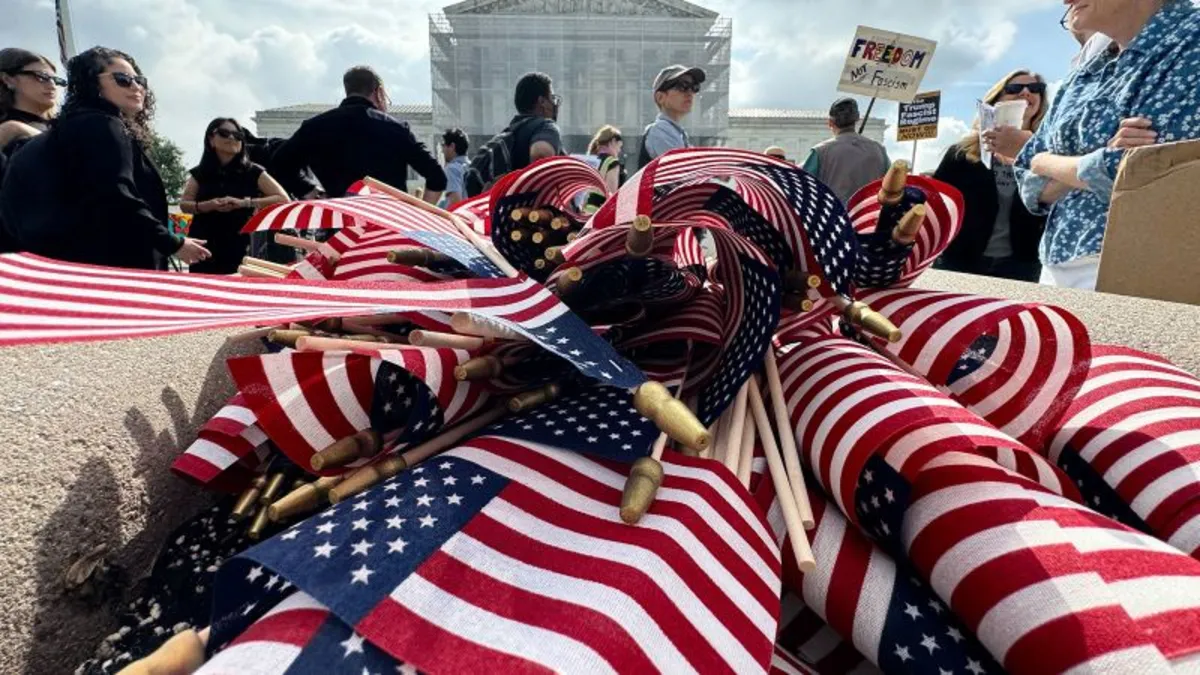
Last month, a significant Supreme Court decision limited the use of nationwide injunctions, which seemed to pave the way for President Donald Trump to initiate his controversial plan to end birthright citizenship. The timeline for enforcement was set to begin last Sunday; however, lower courts have since stalled this effort, leaving the president without a path forward.
President Trump could have proceeded with enforcement if lower courts had modified a series of existing injunctions within a 30-day deadline established by the justices. However, that has not occurred. Instead, lower court judges have issued rulings that prevent Trump's executive order from taking effect, potentially indefinitely. This includes three new adverse rulings that further complicate the administration's plans.
Earlier this month, a federal judge in New Hampshire issued a nationwide block on Trump's order through a class action lawsuit filed by the American Civil Liberties Union (ACLU). This type of litigation is precisely what the Supreme Court suggested could be used to hinder the enforcement of policies that would affect individuals adversely. Notably, the Justice Department has chosen not to appeal this ruling from US District Judge Joseph LaPlante, who was appointed by former President George W. Bush.
Adding to the administration's challenges, a federal appeals court recently ruled that a nationwide injunction from a Seattle judge against Trump's order did not constitute a judicial overreach, as the Supreme Court had suggested might be the case. In a 2-1 decision, the 9th US Circuit Court of Appeals affirmed that the district court acted within its rights in issuing a universal injunction to ensure complete relief for the states involved in the case against Trump's order.
The 9th Circuit's ruling could bring the birthright citizenship issue back before the Supreme Court, especially since the appeals court addressed the constitutional merits of Trump's executive order and found it lacking. Interestingly, the Supreme Court’s ruling from June 27 did not directly address the legality of the birthright citizenship policy but focused on the use of nationwide injunctions.
In another setback for the administration, US District Judge Leo Sorokin ruled that his earlier nationwide injunction against the birthright policy could not be adjusted in a way that would adequately protect against potential harms. This ruling reiterated Sorokin's conclusion that Trump's order is unconstitutional and violates federal statutes. Given these three recent rulings, it remains uncertain whether the policy could have been implemented as originally planned.
Legal representatives for the administration have refrained from providing specific details about what would occur once the Supreme Court's 30-day pause is lifted. "It’s an unusual situation, what the Supreme Court did," remarked DOJ attorney Eric Hamilton earlier this month during court proceedings.
There is a growing consensus that President Trump may never fully implement his birthright citizenship order. Every lower court that has examined the policy has deemed it unconstitutional. Signed on January 20, the executive order, titled “PROTECTING THE MEANING AND VALUE OF AMERICAN CITIZENSHIP,” states that the federal government will not recognize United States citizenship for children born on American soil to parents who are unlawfully present or temporarily in the country. Courts have consistently ruled that this policy violates the Constitution's 14th Amendment, a precedent set by the 1898 Supreme Court case, United States v. Wong Kim Ark, and upheld by previous administrations.
The administration's next steps regarding appeals in cases challenging the executive order are of considerable significance. Legal experts believe that the government’s decision to approach the Supreme Court primarily on the procedural question of whether courts overstepped their authority in blocking the policy was a strategic move aimed at undermining lower court powers.
Jessica Levinson, a constitutional law professor at Loyola Law School, noted that the Trump administration's tactical choice in addressing the issue of judicial remedies, rather than the merits of the executive order itself, reflects a deeper strategy regarding executive actions.
Moreover, the potential for more adverse rulings against Trump's birthright order looms large. A federal judge in Maryland, Deborah Boardman, who previously blocked the order nationwide, indicated her readiness to issue a similar ruling again, pending the re-filing of the case as a class action lawsuit. However, the Richmond-based appeals court must first return the litigation to her jurisdiction.
Meanwhile, the Supreme Court has permitted the administration to develop guidance on how the federal government would enact Trump's birthright policy. However, no specific details have been released so far. "The agencies are currently working on public guidance to explain how the President’s executive order will be implemented," Hamilton informed Judge Sorokin last month, responding to inquiries about behind-the-scenes preparations.
As the situation evolves, the future of Trump's executive order on birthright citizenship remains uncertain, with ongoing legal battles likely to shape its trajectory.